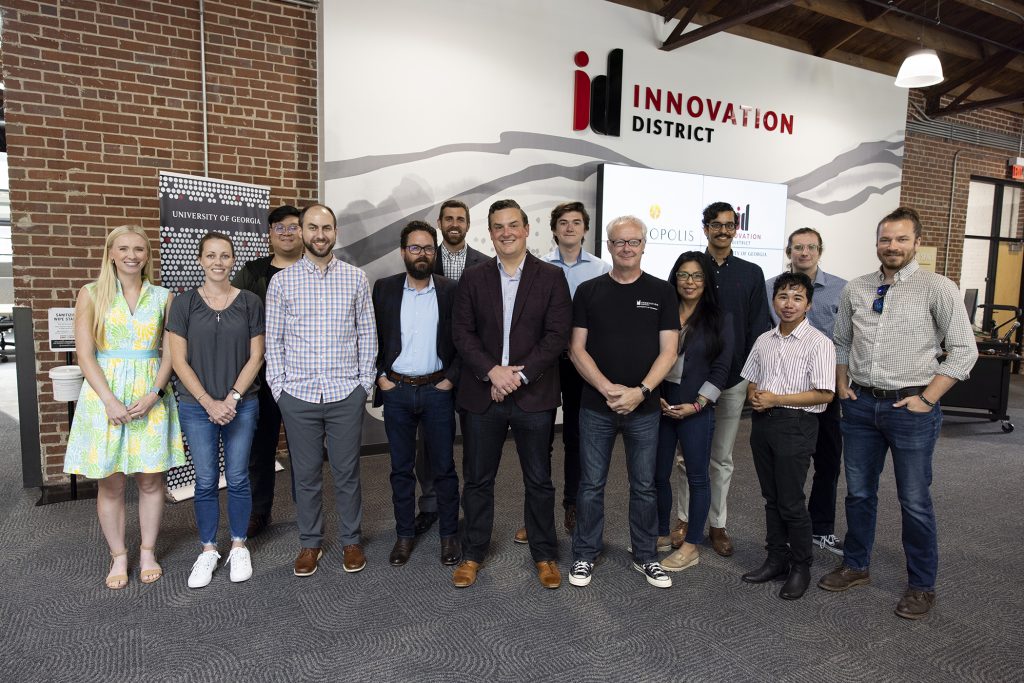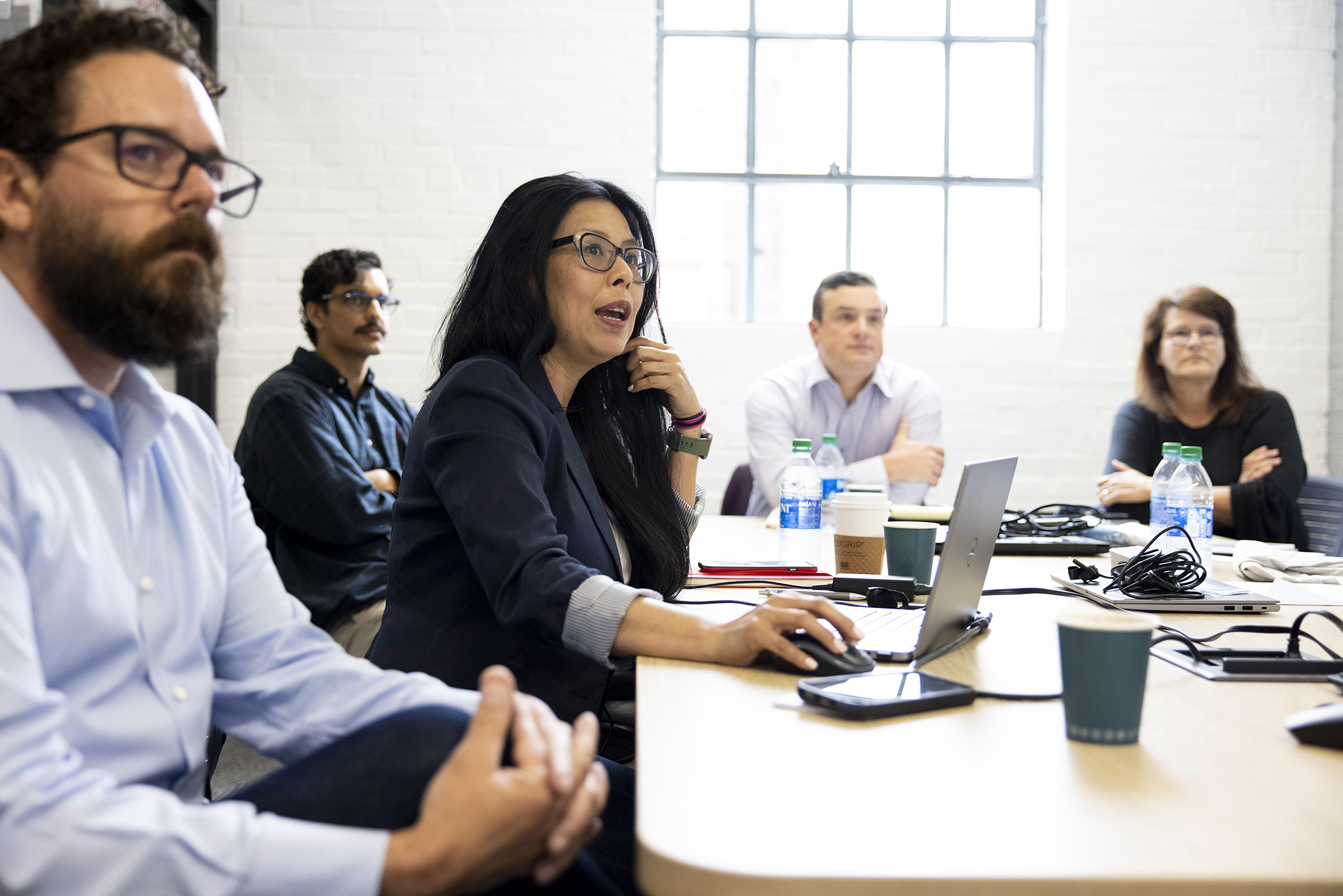A Dallas, Texas-area health care startup is expanding to Athens, Georgia, to establish its product development headquarters in the University of Georgia’s growing Innovation District.
Metropolis, an AMP Health Inc. company, incubated by Adaptive Medical Partners, uses advanced digital technology to streamline recruiting processes by providing low-touch matching solutions for health care providers to employers in large U.S. metropolitan areas. The company, based in Irving, Texas, is led by CEO and co-founder Scott Edwards, who is an alumnus of the University of Georgia. Metropolis moved into the Innovation Hub on June 7.

“Co-locating our company into the Innovation District is a major milestone for Metropolis,” said Edwards. “The company is growing, and situating it in UGA’s vibrant startup environment among the amazing student talent here will give Metropolis every opportunity to thrive. We couldn’t be more excited.”
Metropolis sources physicians and other medical providers through its web platform and connects them to organizations seeking new talent. Using customized algorithms, the company employs a wide range of health care data in concert with user specifications to generate “best predicted” matches for providers and employers alike.
With a footprint in the Innovation District, Metropolis will utilize many facets of the university’s expanding innovation ecosystem, beginning with the Innovation Hub, located at the interface of UGA’s historic North Campus and downtown Athens. The Innovation Hub hosts startup ventures and experiential learning activities, while serving as the university’s front door for industry engagement.
The new arrangement
Inside the Innovation Hub, Metropolis will have dedicated office space and benefit from the variety of meeting rooms and flexible spaces available in the facility for gatherings and events. The company will be supported by UGA’s Startup Program team and operate alongside early-stage UGA research-based startups.

The university will help Metropolis strengthen its talent pipeline by identifying interns and future employees among the student body, as well as by organizing student teams to test and enhance the company’s web platform. UGA will also provide seasoned startup mentors to advise the venture through its early growth.
“We are very excited that Metropolis is establishing a presence inside the Innovation District and within the Innovation Hub, specifically,” said Ian Biggs, director of UGA’s Startup Program. “Successful ventures like Metropolis feed off energy, new ideas and a culture of innovation. With startup services and a range of experiential learning and networking activities occurring here daily, that is exactly what the Innovation Hub offers.”
Metropolis has already begun the venture by hiring university students who are data experts and skilled in machine learning and artificial intelligence. Metropolis plans to build a long-term talent pipeline with UGA graduates. In addition, the company is sponsoring student-led emerging masters projects in partnership with UGA’s New Media Institute, an interdisciplinary unit dedicated to emerging digital technologies.
“We are thrilled to welcome Scott and the Metropolis team into the UGA Innovation District,” said Kyle Tschepikow, special assistant to the president and director for strategy and innovation. “This is just the beginning of what we hope and expect to become a strong and deep partnership that supports and advances the missions of both organizations.”
A strong trajectory
The arrival of Metropolis in the Innovation Hub marks another development in the trajectory of the Innovation District, a campus-wide initiative launched in 2018 to expand UGA’s economic impact through entrepreneurship, research commercialization and industry partnerships.

In 2019, Studio 225 opened in the Innovation District as the home of UGA’s growing student entrepreneurship program. In 2020, the UGA Small Business Development Center, which supports small businesses and entrepreneurs in the local community, and Innovation Gateway, UGA’s technology commercialization unit, relocated into the District. A cluster of university assets are now located within close proximity to assist the expanding pipeline of UGA startups, industry partnerships and experiential learning activities.
Meanwhile, alumni and friends of the university have contributed over $12 million to support the initiative. The university has launched an array of new programs and services to foster innovation and entrepreneurship, including the Innovation Fellows Program and Startup Mentor Programs, the Innovation District Seminar Series, and the Georgia Startup License Program.


